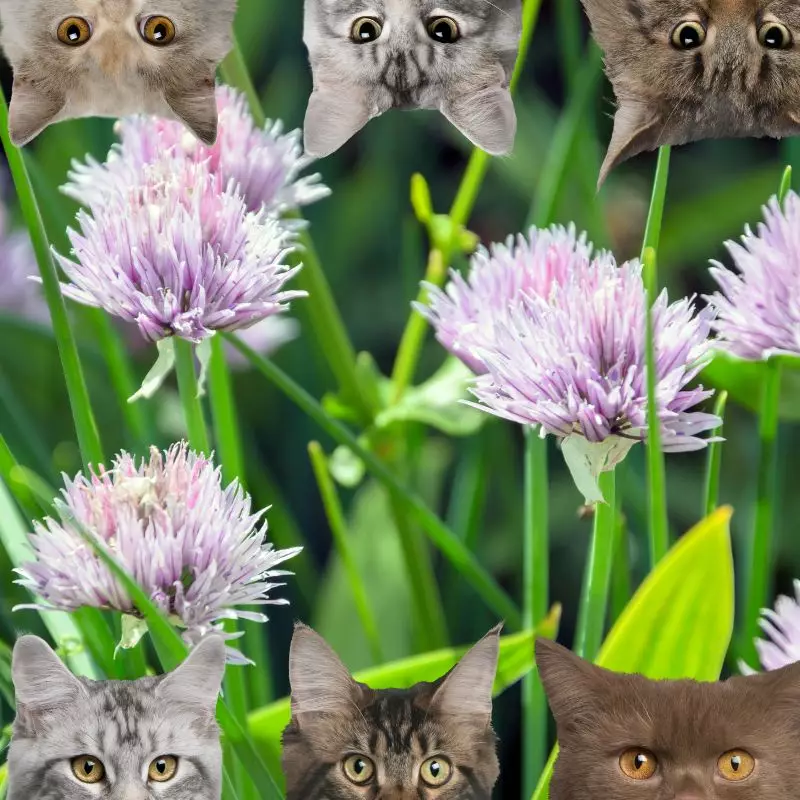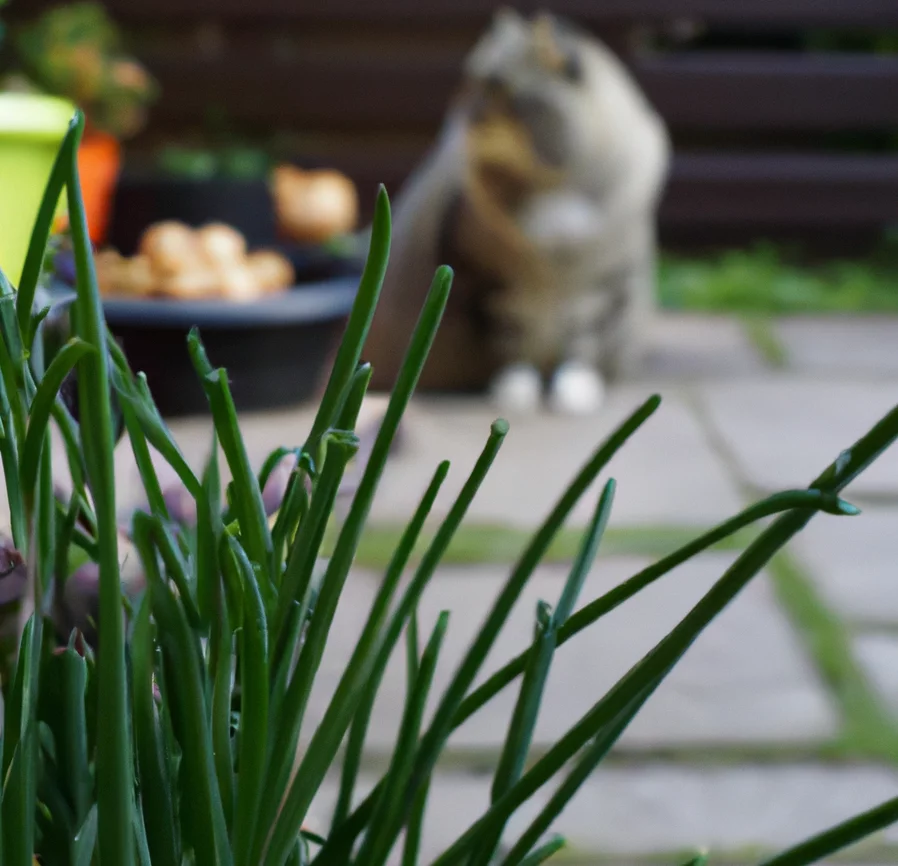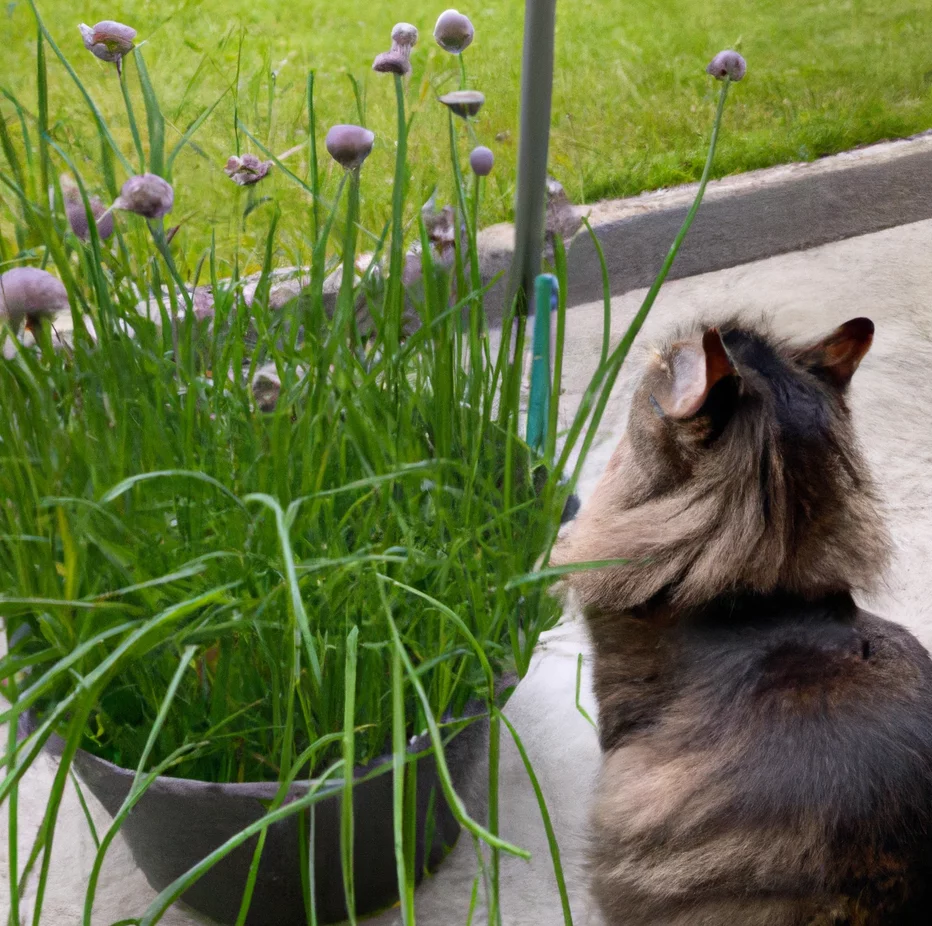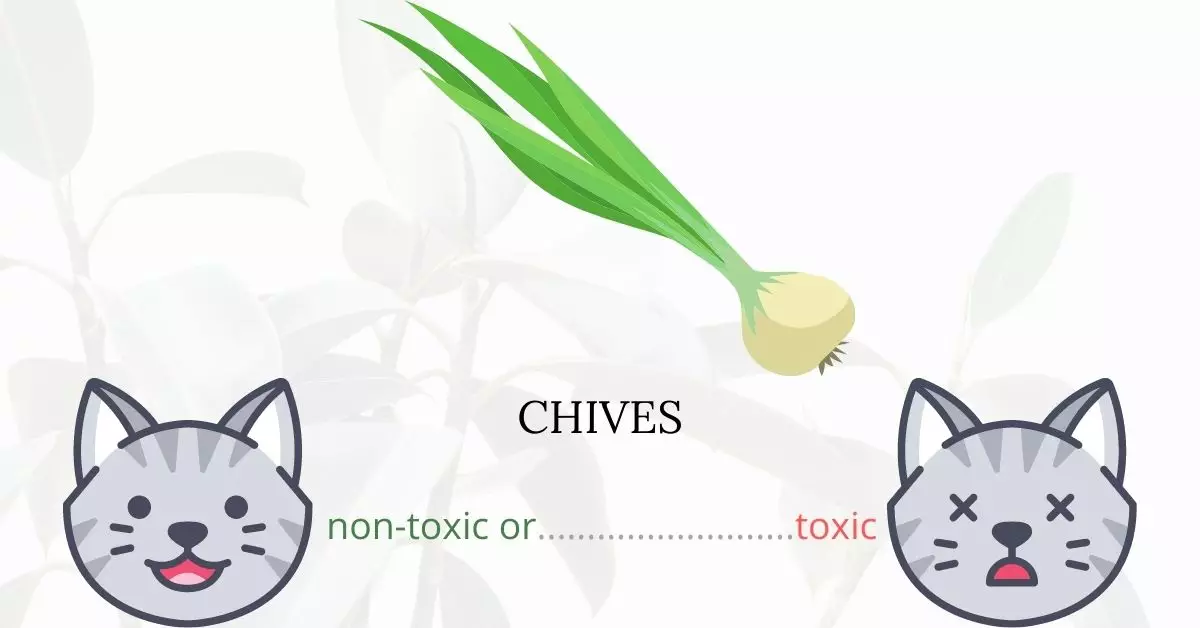This article, crafted in collaboration with a team of experienced DVMs (doctors of veterinary medicine), offers in-depth insights into the dangers posed by chives and their effects on felines. With their expertise, combined with rigorous research from high-authority websites such as the ASPCA and PetMD, we aim to provide you with accurate and up-to-date information on the potential risks associated with chives and other similar plants.
Chives, while fragrant and appetizing for humans, are members of the Allium family, which includes garlic, onion, and leeks. These plants contain N-propyl disulfide, a compound harmful to cats as it can lead to the breakdown of red blood cells, resulting in anemia. Some common symptoms of chives poisoning in cats include drowsiness, pale gums, elevated heart rate, increased breathing rate, and weakness. If you suspect your cat has ingested chives, it is vital to seek veterinary care immediately.
Clinical Signs of Chives Poisoning in Cats

When a cat ingests chives, it can result in a range of symptoms due to the presence of toxic compounds like N-propyl disulfide, which are particularly harmful for felines. Understanding these clinical signs and their underlying causes is essential for early detection and timely treatment. Here’s what you might observe:
- Drooling: This is often an immediate reaction to the oral irritation caused by the compounds in chives. It’s the body’s way of trying to dilute or expel the irritant.
- Nausea: The ingestion of chives can disturb a cat’s stomach, leading to feelings of nausea, an aversion to food, and general discomfort.
- Oral Irritation: The direct contact of chives with the mouth can cause inflammation and irritation due to its toxic compounds.
- Vomiting and Diarrhea: These are the body’s defensive responses to try and expel the toxic elements ingested. It’s a sign that the cat’s body is attempting to remove the harmful substances.
- Lethargy: The toxins can affect the cat’s metabolic and cellular functions, leading to decreased energy levels and a general sense of fatigue.
- Abdominal Pain: This is a direct consequence of gastrointestinal irritation. The cat might be seen frequently trying to find a comfortable resting position or vocalizing in pain.
- Elevated Heart Rate and Respiratory Rate: As the toxins move through the bloodstream, they can cause systemic reactions, leading to increased heart and breathing rates as the body attempts to compensate and manage the toxic load.
- Weakness: The effect of the toxins, especially on the red blood cells, can lead to anemia, making the cat feel weak and listless.
- Exercise Intolerance: Due to potential anemia and general weakness, the cat may show an aversion to physical activity and could tire easily.
- Collapse: In severe cases of chives poisoning, the combined effects of the toxins can lead to a cat’s complete physical breakdown, resulting in collapse.
- Pale Gums: A clear indication of anemia caused by the destruction of red blood cells. The gums, which are typically pink, become noticeably paler when the cat is affected by the toxin.
If you notice any of these symptoms, particularly after known or suspected contact with chives, seek veterinary assistance promptly.
First Aid and Treatment of Chives Poisoning in Cats

Your veterinarian may be able to induce vomiting to eliminate undigested herbs from your cat’s gastrointestinal system if the consumption was recent; however, you should not induce vomiting at home without consulting your cat’s doctor. To detoxify the gastrointestinal tract, your veterinarian may prescribe activated charcoal. These strategies work to keep the toxin from entering the body.
Dehydration is common for cats suffering from extreme vomiting and diarrhea. The veterinarian may give your cat intravenous fluids to balance his hydration. A complete blood transfusion may be necessary if your cat may have already lost a lot of red blood cells by the time you bring him to the veterinary office for treatment.
Recovery from Chives Poisoning in Cats

Your cat may be kept by your vet after therapy to ensure that he is stable and no longer requires IV fluids or breathing assistance. To avoid damaging the cat’s sensitive stomach, the vet may advise you to stick to softer meals. Keep your cat comfortable and peaceful for the next few days as he regains his vigor.
Prevention of Chives Poisoning in Cats
Since using chives is inevitable in households, make sure that these herbs are inaccessible to your cats to avoid them from accidentally ingesting them. Make sure to not feed your cat any dish that contains chives as well.
If you love plants but have cats at home, check out these lists:





